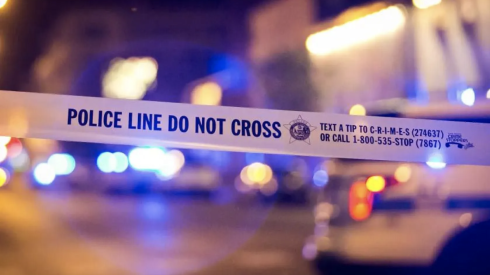The name Corey Lewis probably doesn’t mean much to the average college football fan. To me, it means a lot. It means a player who gutted it out through six years and — count ’em — four ACL tears as an offensive lineman at Illinois. It means a bright, engaging 25-year-old with a master’s degree who refuses give up on an improbable NFL dream. It means the sort of guy you just plain want to root for.
Checking in with Lewis every once in a while? It’s good for the soul.
This time, the reason for reaching out wasn’t so wonderful. By now, you’ve surely heard of the accusations brought by former player Simon Cvijanovic against coach Tim Beckman and the football program. A few other ex-players have lined up behind Cvijanovic, and a Chicago law firm was retained by the school to determine if, in a nutshell, certain players were subjected to threats and intimidation or even were misinformed about their injuries.
It’s that last part that led me to Lewis, whose final season was in 2013. That year — Beckman’s second at the school — Lewis started all 12 games only to discover after a postseason MRI that he’d likely played the entire campaign with a fourth ACL tear in his left knee. You have to figure this is someone who knows a thing or two about what it’s like to be an injured football player in Champaign.
My first question: Why didn’t he know his ACL was injured until after the season?
“I knew going back to camp my knee wasn’t right, but I didn’t want to get an MRI,” he said. “I didn’t know I tore my ACL; I just thought I had some further damage. But I didn’t get an MRI because I knew if it was [a serious injury] they would ultimately shut me down.”
Lewis felt like he could play through whatever it was, and it turned out he was right. Smart? That’s debatable, but he was right. On the whole, though, he needed a great deal of care and support from Illini coaches and medical staff during his career, and he says he got all he could’ve wanted.
“I felt like my situation was handled great,” he said. “With my history, Beckman didn’t have to bring me back for a sixth year, but he did. When I was out in 2012, [then-offensive line coach Luke] Butkus kept my spirits up. The next year, [offensive coordinator Bill] Cubit grew like a father figure to me. Everybody knew my situation, and everybody on the team kind of rallied around me.”
The coaches accommodated Lewis to help him stay on his feet through his final season, holding him out of all Sunday and Tuesday practices and limiting his reps on Wednesdays. After the season, Beckman connected Lewis with Indianapolis Colts team doctor Thomas Klootwyk, who performed surgery that, according to Lewis, Illinois covered.
Lewis recently signed a one-year contract with the CFL’s Winnipeg Blue Bombers and believes he wouldn’t still be playing if his Illini coaches hadn’t been patient and supportive with him.
“That’s why it’s hard for me to wrap my hands around what Simon said happened to him,” Lewis said.
Lewis points out that he was no longer on the team in 2014 and, thus, doesn’t have first-hand knowledge of the atmosphere surrounding Cvijanovic, his former linemate and roommate, that season. Suffice it to say, Lewis has his doubts about some of the accusations. And he has his own Illinois experience — one filled with a lot of good things, for sure, but also with pain, disappointment and too many emotional conversations with doctors and coaches.
“And,” he said, “I would do it all over again if I could.”
Email: sgreenberg@suntimes.com
Twitter: @slgreenberg




